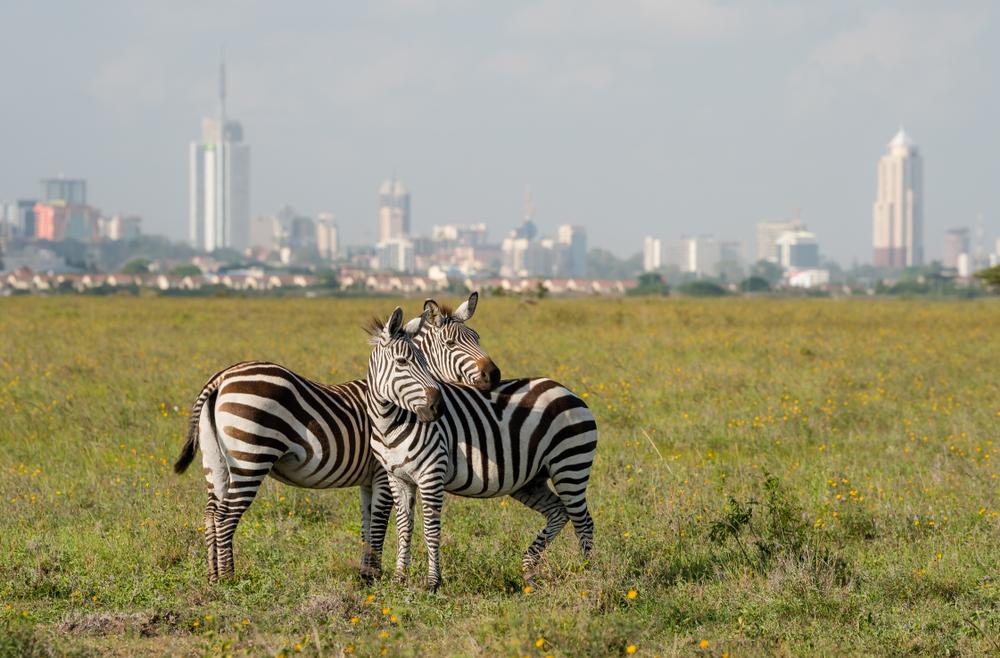The Kenyan capital of Nairobi is a chaotic metropolis, with over 3 million people residing in the city, there’s plenty going on at all junctures.
We take a deep look at some of Kenya’s key industries, including the city’s once burgeoning tech sector, alongside some of the latest political developments affecting Kenya.
Economy
The Kenyan economy is largely driven by its Agriculture, with 80% of its population employed by the farming sector.
Whilst Nairobi is one of East Africa’s largest urban cities, it is also home to some of the nation’s prime agricultural lands. As such, various crops such as maize, beans, and fruit are all grown in the region, and exported all over the globe.
Kenya also happens to be the largest tea exporter in the world.
Goods such as clothing, textiles, building materials, beverages and cigarettes are also all manufactured in Nairobi.
Foreign companies such as Coca-Cola, General Motors and IBM all have factories in the Kenyan capital.
The city also has a budding financial centre, home to the Nairobi Securities Exchange, which is also of Africa’s largest.
It is Africa’s 4th largest in terms of trading volumes, and 5th largest in terms of Market Capitalization as a percentage of GDP.
As of 2018 estimates, Kenya had a GDP of $85.980 billion making it the 69th largest economy in the world. Per capita GDP was estimated at $1,790.
However, tourism continues to drive economic growth in the region. Surrounding safari parks mean Nairobi is a top tourist destination, attracting travellers from all corners of the world.
Silicon Savannah
Nairobi is often referred to as the Silicon Savannah, in reference to the over 200 tech-start-ups residing in the city.
Some of that initial buzz may have fizzled out in recent years however, with tech hubs increasingly spreading outside the confines of the city.
Still, innovative companies such as ihub, which opened its doors in the city back in 2010, have made Nairobi their home.
Its nickname is no doubt a nod to the over 200 start-ups hosted in the capital.
As it happens, Nairobi was the only African city to appear on their shortlist of 21 broadband hubs throughout the world for 2015.
In fact, Kenya enjoys one of the fastest mobile Internet speeds across globe, beating the United States and Sweden.
Moreover, according to a Disrupt Africa report, shows tech start-ups across Africa raised over $129 million in 2016, a 17% increase on the previous year, with Kenya attracting the second highest investment after South Africa.
Yet Nairobi, like all cities, has room for improvement – ranking 186 on Mercer’s Quality of Living City Rankings 2017. The ranking flagged traffic, crime levels, poor public transport and housing as some of its key concerns.
Safaris and Scenery
Nairobi is often referred to as ‘The Green City in The Sun’, due to its greenery and warm, balmy temperatures.
It is also called the ‘Safari Capital of the World’, with safari tours bringing in rafts of tourists and visitors.
Africa’s Media Hub
Nairobi is also home to many multi-national news corporations’ regional headquarters including the BBC, CNN, Agence France-Presse, Reuters and Deutsche Welle.
Most recently, the BBC announced it had launched its largest bureau outside of the UK in Nairobi.
Almost half of the 600 BBC journalists working across Africa are to be based in the new facility in Nairobi.
Kenya’s Politics
The Economist Intelligence Unit rated Kenya as a “hybrid regime” back in 2016.
A hybrid regime is considered to be a partial democracy, where elections take place but there are also elements of political repression and corruption.
Currently, the Kenyan President is currently Uhuru Kenyatta, who is leader of the National Alliance party.
He also happens to be the son of Jomo Kenyatta, the nation’s first President.
Kenyatta was re-elected for a second term back in August of 2017, with an alleged 54% of the popular vote.
However, the result was challenged in the Supreme Court. The court ruled that another election must take place within 60 days of the ruling.
Kenyatta was re-elected in the second election, with 98.26% of the vote, on a turnout of 38.84%.
Crime in the capital
Unfortunately, Nairobi’s reputation in terms of crime continues to drag down its potential.
In particular, crime tends to increase during the time of an election – with political unrest proving a key driver of civic violence.
Moreover, the Kenyan capital is also at high risk of terror attacks, with extremist group Al Shaabab launching violent terror attacks on shopping centres, embassies and tourist hotspots.




